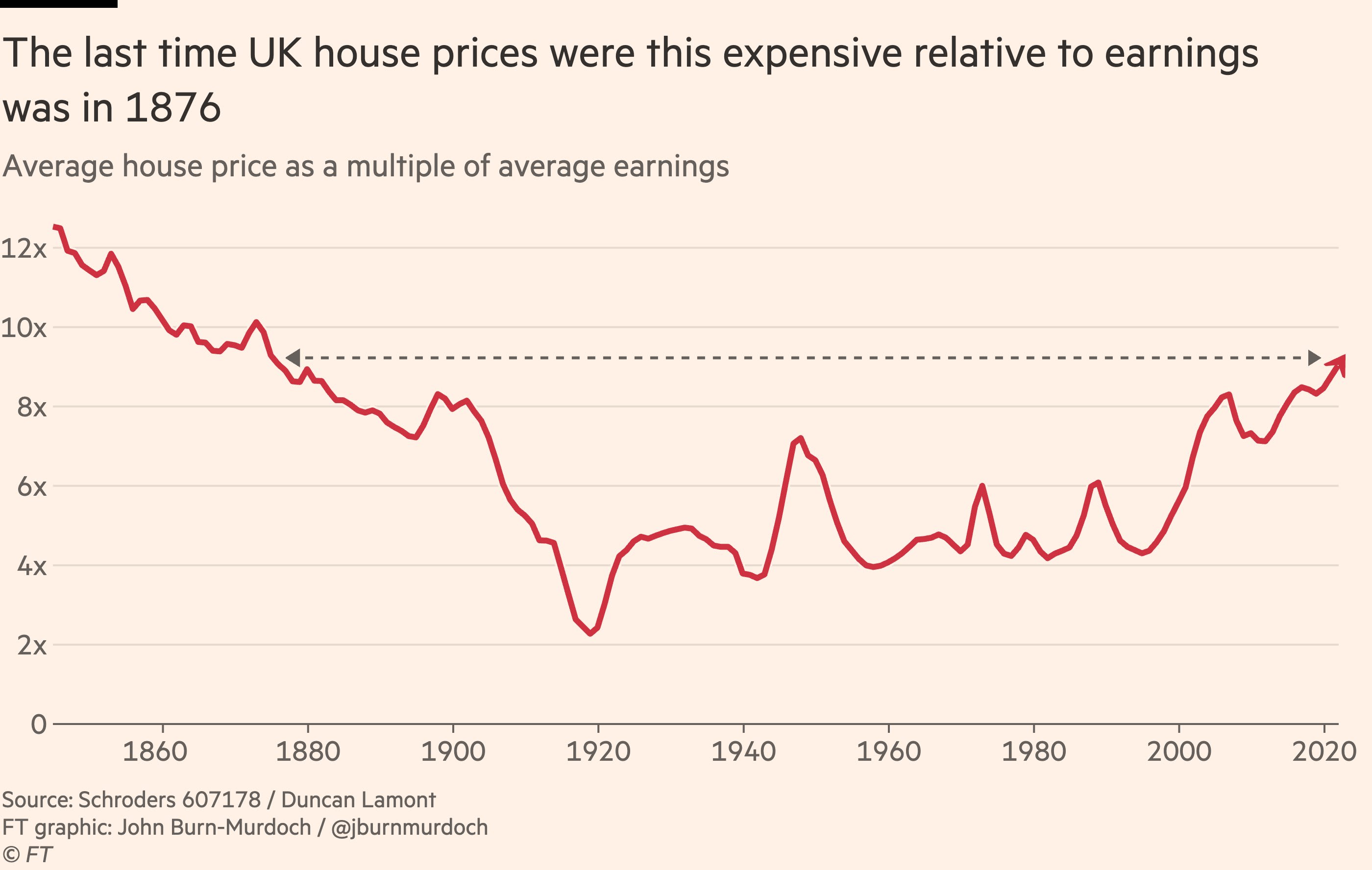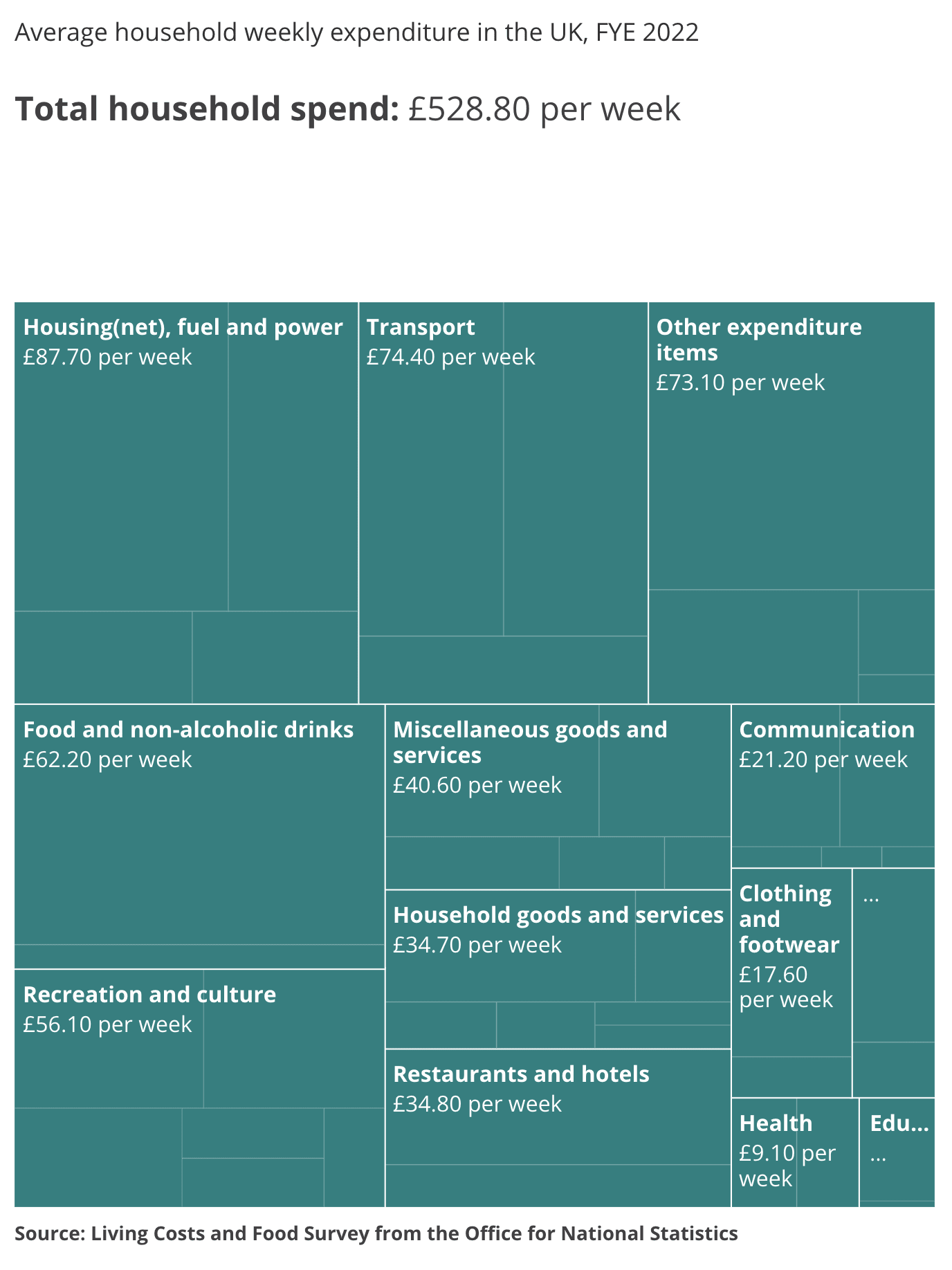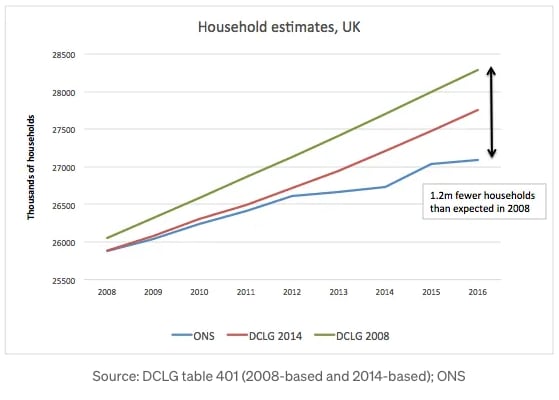Housing Supply (new discussion format)
post by Nathan Young, jamierumbelow · 2024-04-18T09:28:30.116Z · LW · GW · 18 commentsContents
The discussion is: The rules are: FAQ Why not LessWrong Dialogues? Why are there so many top level posts? None 18 comments
We are testing a new discussion format.
The discussion is:
The UK is hamstrung by a housing crisis which is caused by a lack of supply.
The rules are:
- Jamie R and I will discuss the issue
- You can react to our comments
- You can comment in the thread specifically for that purpose but anywhere else your comments will be deleted
- To repeat, I will likely delete any comment that isn't in the "others-comments" threat
- My and Jamie's answers may be edited without warning
Generally Jamie will be arguing for the idea that housing supply is a big problem and I will be arguing against. We'll see how that goes in terms of clarity.
I do not necessarily endorse my comments in this piece. I am trying to lay out all the arguments I hear for my side and Jamie his.
FAQ
Why not LessWrong Dialogues?
I don't think lw dialogues match how I think, which is in nested bullet points. I sense from how often I see thinking displayed in this nested bullet point way (AI impacts, Kialo, Rootclaim) that many feel similarly.
Why are there so many top level posts?
My discussions don't often have a well understood central point. They cut across many times in different ways.
18 comments
Comments sorted by top scores.
comment by jamierumbelow · 2024-04-18T15:48:03.500Z · LW(p) · GW(p)
I take it we agree on the basic validity of the laws of supply and demand. My first question: where, if not supply constraints, are these high prices are coming from?
UK house prices are nearly 10x earnings:

Rents in London are amongst the highest in Europe: https://twitter.com/jwhandley17/status/1779782460944900196
But if these aren't supply problems, what explains them?
Replies from: Nathan Young↑ comment by Nathan Young · 2024-04-18T16:04:05.919Z · LW(p) · GW(p)
Housing is a good source of long-term income, there are comparatively poor options, so prices go up compared to incomes.
To quote @Ege Erdil [LW · GW] attempting to steelman:
Replies from: Nathan Youngthere could be an interest rate effect - as interest rates fall, claims on future rents become more expensive so housing prices go up.
↑ comment by Nathan Young · 2024-04-26T12:47:10.757Z · LW(p) · GW(p)
Counter point: We would likely guess that the graph of rent to income would look similar.
comment by Nathan Young · 2024-04-18T11:00:59.969Z · LW(p) · GW(p)
Housing just isn't that high of a priority. The UK is poor because of productivity, not housing costs.
This from bernoulli_defect:
Replies from: jamierumbelow, jamierumbelow, jamierumbelowWhile housing would increase quality of life and luxury, it’s questionable whether it would fix low British productivity in non-housing constrained industries.
Consider how the Bay Area has had huge GDP growth despite housing shortages as people just cram into bedsits
↑ comment by jamierumbelow · 2024-04-18T16:30:04.932Z · LW(p) · GW(p)
Tail wagging the dog. High productivity areas cause higher housing costs – just like in London.
The Bay Area example doesn't explain why lowering housing costs wouldn't increase productivity - it just shows that low housing costs isn't a necessary condition for it.
↑ comment by jamierumbelow · 2024-04-18T16:43:43.718Z · LW(p) · GW(p)
I'm not sure I agree that lower housing costs wouldn't represent a boost to productivity.
UK average household spend on housing is ~17%:

In London rents are a much higher percentage, somewhere between 45-50%. (Will update with the exact number and a source later.)
Understood as a pot of money that could otherwise be spent on other things, I'm not sure I buy that lowering housing costs wouldn't boost the economy.
Excessive housing costs create negative spillovers that hurt productivity in other sectors. If workers have to commute longer because they can't afford to live near work, that reduces their available working hours. If businesses can't attract workers because of high housing costs, that constrains their output. If consumer spending is constrained by high rents, that reduces demand (and thus production) across the economy.
It's possible that these spillovers aren't occurring – this comment doesn't constitute proof – but basic economics would suggest they are.
↑ comment by jamierumbelow · 2024-04-18T16:33:05.522Z · LW(p) · GW(p)
The UK housing crisis isn't just about productivity. Hold productivity fixed, and increase floor space, amenities, access to public transport, consumer choice in housing. Is this a UK we'd prefer to live in? Presumably yes.
We can still disagree about where to stack-rank it on our list of priorities, but that's not really what we're discussing.
Replies from: Nathan Young↑ comment by Nathan Young · 2024-04-18T17:40:43.051Z · LW(p) · GW(p)
[This one needs work]
Isn't the case usually that housing is the single greatest factor between a US and UK standard of life? Or do you not agree?
Replies from: jamierumbelow↑ comment by jamierumbelow · 2024-04-18T17:55:46.963Z · LW(p) · GW(p)
Maybe? For the median person, healthcare seems better, disposable salaries are higher, variety and quality of food is generally stronger. The US does a lot of things better. Housing, for sure, is one of them. But I'm not sure how this is a response to my point. Could you clarify?
comment by Nathan Young · 2024-04-18T09:37:25.857Z · LW(p) · GW(p)
There isn't a housing shortage. There are more houses than there are households.
This from Ian Mulheirn:
No. Back in 1991 there were just over 3.0% more houses than there were households in the UK according to government data. Today, using the ONS’s latest household estimates, there appear to be 5.2% more places to live than there are households that want to live in them. In fact growth in the stock of dwellings appears to have outstripped that of households over the past 50 years or so. This is a strange sort of ‘endemic shortage’.
He shows this graph, showing that households (blue line) have repeatedly undershot expectations (red and green line)
↑ comment by jamierumbelow · 2024-04-18T17:13:35.619Z · LW(p) · GW(p)
The ONS's definition of household:
A household is one person living alone, or a group of people (not necessarily related) living at the same address who share cooking facilities and share a living room, sitting room or dining area. A household can consist of more than one family, or no families in the case of a group of unrelated people.
Higher housing costs mean fewer households. Children live with their parents for longer. Graduates move into HMOs because they can't afford a one-bedroom flat. Households growing at a slower rate than dwellings doesn't mean there isn't a supply constraint; it can often mean the opposite.
If I wanted to prove your point, the test would be whether the number of dwellings grew faster than the number of people, not the number of households.
comment by Nathan Young · 2024-04-18T09:31:23.311Z · LW(p) · GW(p)
COMMENT THREAD
If you comment anywhere other than here, Nathan will delete your comment.
Replies from: lahwran, KatjaGrace, Dagon↑ comment by the gears to ascension (lahwran) · 2024-04-18T10:34:34.361Z · LW(p) · GW(p)
why this, rather than lw dialogues?
Replies from: Nathan Young↑ comment by Nathan Young · 2024-04-18T10:59:01.126Z · LW(p) · GW(p)
I don't think lw dialogues match how I think, which is in nested bullet points. I sense from how often I see thinking displayed in this nested bullet point way (AI impacts, Kialo, Rootclaim) that many feel similarly.
↑ comment by KatjaGrace · 2024-04-18T18:03:48.230Z · LW(p) · GW(p)
Why does it having a productivity problem mean it doesn't have a housing problem? Seems like you want to say housing will not fix its productivity problem? (And that is a bigger problem, thus housing is not the biggest?)
Replies from: Nathan Young↑ comment by Nathan Young · 2024-04-18T20:16:50.507Z · LW(p) · GW(p)
I guess, why is it a problem.
↑ comment by Dagon · 2024-04-18T14:34:35.798Z · LW(p) · GW(p)
What's the desired outcome of this debate? Are you looking for cruxes (axioms or modeling choices that lead to the disagreement, separate from resolvable empirical measurements that you don't disagree on)? Are you hoping to update your own beliefs, or to convince your partner (or readers) to update theirs?
I do not necessarily endorse my comments in this piece.
That's likely to need some explanation about why it's valuable to put such comments on LessWrong. It's fine to put non-endorsed views here, but they should be labeled as to why they're worth mentioning. Putting misleading or known-suspect arguments-as-soldiers on LW, especially mixed in with things you DO support, is a mistake.
Replies from: Nathan Young↑ comment by Nathan Young · 2024-04-18T15:26:45.981Z · LW(p) · GW(p)
I want to try this as a way of argument mapping alongside a community that might use it.
It seems likely that a proper accounting of the argumetns may involve some false statements.
If it goes well I think it could be useful to me and readers, but I guess it will take several iterations.
